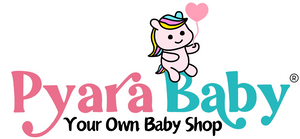TIPS TO PREPARE FOR BREASTFEEDING BEFORE YOUR BABY ARRIVES
- By
Misbah
Being pregnant is a delightful feeling. Sometimes it can be quite joyful, and other times it can be hard and challenging as well as full of worries for what’s to come.
And once you start that lovely journey, you'll certainly realize how incredible it is.
Motherhood begins with pregnancy. As the foetus develops inside of you, your body will experience numerous changes. You will eagerly welcome the change because motherhood is such a lovely experience.
Being a mom to be, we are anticipating the birth of the child.
We spend a long time learning about labor and delivery, looking at different birth options, purchasing baby supplies, and setting up the baby's room.
But we frequently neglect to concentrate on a vital challenge – breastfeeding.
Because breastfeeding is natural, as we all know, we may just go with the flow without making any effort or preparations. This is the first error every new mom makes.
Even I have made the same mistake. Having learned from my errors, I think it is of utmost importance to prepare for nursing before giving childbirth.
Without a doubt, if you wish to nurse your child.
TIPS TO FOLLOW BEFORE BIRTH TO MAKE NURSING EASIER FOR YOU AND YOUR CHILD
- Be mentally prepared because the first few days of breastfeeding are difficult, time consuming and hard for both you and your baby. You may encounter challenges such as a bad latch, difficulty getting your infant to latch, getting enough feed to fulfil your child’s needs, the length of the early feedings, cluster feedings, lack of sleep, fatigue, tongue-tie, etc. The more familiar you are with certain struggles, the better emotionally you can handle them!
- Examine your breasts with the help of a medical professional, and correct any flat, retracted or inverted nipples during pregnancy.
- Consult a physician if you have been diagnosed with diabetes or PCOD, as these disorders may increase your risk of having low milk supply.
- Before delivery, speak with a lactation consultant so that you can contact them for assistance once your child is born.
- Talk to your friends and relatives who are breastfeeding or think about joining support groups for breastfeeding. By engaging in conversation with like-minded others, you won't feel alone.
- Invest in necessities like nursing bras, nursing tops, nursing pillows, nipple cream, breast pumps, and breast pads to make nursing easier.
- After producing that much milk, you'll always be hungry, so stock up on healthy snacks.
- Improper nipple care or baby’s poor latch can cause sore nipples in the early stages of breastfeeding It takes skill to latch properly, however some people have a natural talent for it. Some people, however, must learn this skill. By watching a few videos of it prior to delivery, you can learn the correct latching methods and perfect them after the baby is born.
- Pacifiers and bottles shouldn’t be used during the first week after birth to prevent nipple confusion, unless a medical condition exists, or you prefer not to nurse.
- The first milk your body generates while you are pregnant is called colostrum, and it is the first milk your baby will receive from your breasts. Simply hand express them within 1 hour after birth, if your baby is having trouble latching, as the development of a baby's immune system depends in large part on this golden milk.
- Ask your partner or other family members to help you with the baby's care. After giving birth, your body requires rest to heal.
- Learn your baby's hunger cues, which include placing hands or fists on the mouth, sucking with the mouth, and tilting the head to look at the breasts. Noting that crying might be a delayed symptom of hunger and make it more difficult for the infant to latch
By just following the above advice, you can make breastfeeding considerably less stressful and much easier for both you and your child.
Even if you don't want to breastfeed or are having trouble nursing for unavoidable reasons, you may always give your infant a formula supplement that also includes balanced nutrients.


